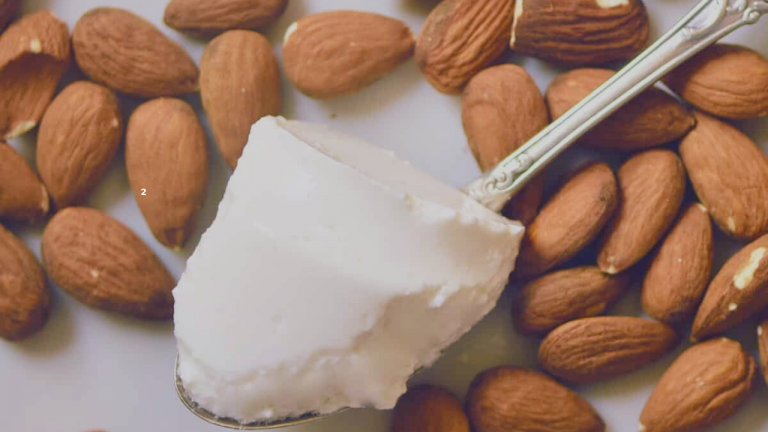Creamy Coconut Dream Yogurt

Benefits and Nutritive Value of Coconut Yogurt:
- Dairy-Free Alternative: Coconut yogurt is an excellent option for individuals who are lactose intolerant or follow a dairy-free diet, providing a creamy texture similar to traditional yogurt without the need for dairy products.
- Rich in Healthy Fats: Coconut contains medium-chain triglycerides (MCTs), which are a type of healthy fat that can provide quick energy for the body and support brain health.
- Source of Essential Nutrients: Coconut is rich in essential nutrients such as vitamins C, E, and B-complex vitamins, as well as minerals like magnesium, potassium, and iron.
- Probiotic Potential: While this recipe doesn’t involve the addition of probiotic cultures, coconut yogurt has the potential to be a source of beneficial bacteria if fermented naturally. Fermented foods like yogurt can support gut health and digestion.
- Antioxidant Properties: Green chilies, a key ingredient in this recipe, contain antioxidants like vitamin C and beta-carotene, which can help neutralize free radicals in the body and reduce oxidative stress.
- Low in Added Sugar: Homemade coconut yogurt allows you to control the amount of sugar added, making it a healthier option compared to store-bought varieties that may contain high levels of added sugars.
- Versatile: Coconut yogurt can be enjoyed in various ways, whether as a topping for granola or fruit, as a base for smoothies, or as a tangy accompaniment to savory dishes, adding flavor and creaminess to your meals.
- Gut Health: If properly fermented, coconut yogurt can contain beneficial probiotics that support gut health, promoting a healthy balance of bacteria in the digestive system.
- Hydration: Coconut is naturally hydrating due to its high water content, making coconut yogurt a refreshing option, especially during hot weather.
- Digestive Support: The combination of coconut and green chilies may provide digestive support due to their fiber content and potential anti-inflammatory properties.
Overall, homemade coconut yogurt offers a range of health benefits, including being dairy-free, rich in healthy fats and essential nutrients, potentially containing probiotics, and supporting gut health and digestion. Plus, it’s a versatile and delicious addition to your diet.
The nutritive value of coconut yogurt can vary depending on factors such as the specific ingredients used, the fermentation process, and any additional additives. However, here is a general overview of the key nutrients commonly found in coconut yogurt:
- Macronutrients:
- Carbohydrates: Coconut yogurt typically contains carbohydrates from the coconut milk and any added sugars. Carbohydrates provide energy for the body.
- Protein: Coconut yogurt may contain some protein, primarily from the coconut milk. Protein is essential for muscle repair and growth.
- Fat: Coconut yogurt is naturally high in healthy fats, particularly medium-chain triglycerides (MCTs) found in coconut. These fats can provide energy and support various bodily functions.
- Vitamins:
- Vitamin C: Green chilies are a good source of vitamin C, an antioxidant that supports immune function and collagen synthesis.
- Vitamin E: Coconut is rich in vitamin E, which acts as an antioxidant and supports skin health.
- B Vitamins: Coconut yogurt may contain B-complex vitamins, including riboflavin (B2), niacin (B3), and folate (B9), which are important for energy metabolism and cell function.
- Minerals:
- Potassium: Coconut yogurt provides potassium, an electrolyte that helps regulate fluid balance, nerve function, and muscle contractions.
- Magnesium: Coconut yogurt may contain magnesium, which is essential for bone health, muscle function, and energy production.
- Iron: Coconut yogurt contains small amounts of iron, which is important for oxygen transport in the blood.
- Fiber:
- Coconut yogurt may provide dietary fiber, which supports digestive health, regulates blood sugar levels, and promotes satiety.
- Probiotics (if fermented):
- If coconut yogurt is fermented naturally or with the addition of probiotic cultures, it can contain beneficial bacteria that support gut health and digestion.
It’s important to note that the exact nutrient content of coconut yogurt can vary based on factors such as the specific brand or homemade recipe, serving size, and any additional ingredients or additives. Additionally, individuals with specific dietary requirements or health conditions should consider the ingredients and nutritional content of coconut yogurt to ensure it aligns with their needs.



